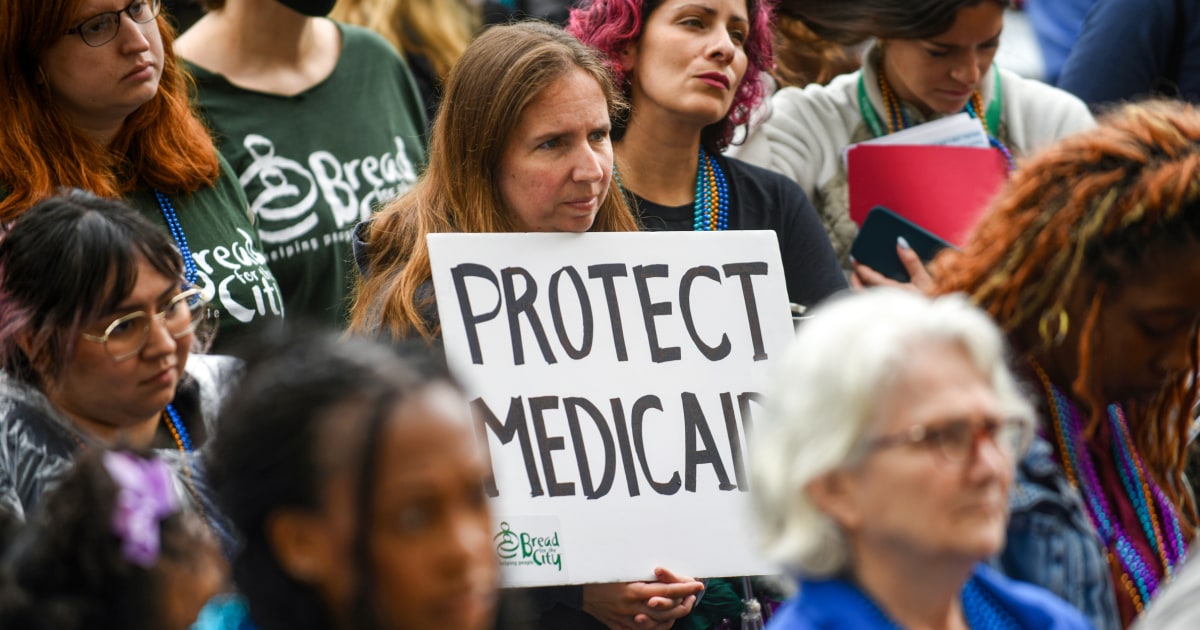Rural hospitals across the United States are grappling with critical decisions following the recent signing of a substantial domestic policy bill by President Donald Trump. This legislation includes significant cuts to both Medicaid and the Affordable Care Act (ACA), prompting hospital administrators to consider reductions in essential services, particularly for vulnerable populations such as children and cancer patients.
The CEO of Hutchinson Regional Healthcare System, Benjamin Anderson, oversees a 180-bed facility that serves as the sole hospital for many residents in rural South Central Kansas. Anderson indicated that the hospital is now evaluating how to sustain its range of services, which includes hospice and home care, inpatient mental health treatment, and cardiology programs. He noted that less profitable services, such as women’s health and pediatric care, are likely to face the most severe cuts. The hospital is currently determining which programs can be salvaged.
The implications of the legislation extend beyond service availability. The cuts will exacerbate ongoing staff shortages, as the hospital will maintain its hiring freeze, risking burnout among employees already stretched thin due to the pandemic and high patient volumes. Anderson remarked, “What this does is put us at risk when the respiratory season hits,” referring to the anticipated rise in flu, Covid, and RSV cases this autumn. He emphasized, “We’re at real risk of wearing out the staff we have right now.”
Financial Strain on Rural Healthcare
Rural hospitals typically rely heavily on Medicaid funding, which supports a greater proportion of low-income patients. Research conducted by KFF, a health policy research group, estimates that Trump’s legislation, often referred to as the “big, beautiful bill,” could result in approximately 17 million people losing coverage due to alterations in Medicaid and the ACA. According to a letter from Democratic lawmakers, over 300 rural hospitals in the U.S. are at risk of closure as a consequence of these cuts. If a higher number of patients become uninsured, these hospitals face the possibility of not being compensated for their services.
The bill entails nearly $1 trillion in cuts to Medicaid, primarily through new work requirements and modifications to state funding mechanisms known as provider taxes. Additionally, it introduces changes to the ACA, including increased paperwork requirements for annual coverage renewals and the expiration of government subsidies for health plans at the end of the year. The Congressional Budget Office, a nonpartisan entity that provides economic information to Congress, has projected that nearly 4 million individuals could lose their coverage by 2026 if these subsidies are not extended.
Edwin Park, a research professor at the Georgetown University McCourt School of Public Policy, underscored that the modifications to Medicaid represent the greatest threat to rural hospitals. While many of these changes will not take effect until 2027 at the earliest, Park anticipates that states and rural hospitals will not delay in preparing for the impending challenges.
Recently, the Community Hospital in Nebraska announced the closure of Curtis Medical Center, a clinic located in a town of approximately 900 residents, citing anticipated government cuts as a contributing factor. Park explained, “They’re going to start making cuts now. So, instead of a cliff, they’re trying to cut now so that they don’t have all the painful cuts in a single year.”
Immediate Challenges and Long-Term Impacts
In Colorado, Kevin Stansbury, CEO of Lincoln Community Hospital and Care Center, a 25-bed facility in Hugo, indicated that service reductions may soon be necessary, including in long-term care. The hospital currently receives around $300,000 a month in provider tax reimbursements, which is barely sufficient to break even. Stansbury has begun discussions with private insurers to explore increasing reimbursement rates for rural hospitals to help mitigate losses from the Medicaid and ACA changes. He stated, “We’ll be working with other hospitals in the state and the state Medicaid agency to see what, if anything, can be done to mitigate the impact.”
The legislation does allocate $50 billion for rural hospitals, which will be distributed by the Centers for Medicare and Medicaid Services over five years. However, Park referred to these federal funds as a “fig leaf,” suggesting they will not adequately compensate for the losses incurred due to the cuts to Medicaid and the ACA. Toniann Richard, CEO of HCC Network, a community health center with six locations in Missouri, expressed disappointment at the focus of government funds on infrastructure improvement rather than addressing immediate financial losses. She noted that approximately 40% of her center’s patients are on Medicaid.
Richard is not planning any immediate changes but acknowledges that rural hospitals in her state may soon face service cuts or reductions in specialty services, such as cardiology and oncology, which often lack adequate reimbursement. In recent years, several rural hospitals in eastern Missouri have closed due to financial challenges.
In California, both urban and rural hospitals could see revenue reductions of up to 30% over the next decade, leading to difficult decisions about service access. Carmela Coyle, president and CEO of the California Hospital Association, stated that these cuts “will mean real harm to real people in communities large and small across California.” She characterized the legislation as the most significant cuts to the healthcare system ever enacted, arguing that they are too deep for hospitals to simply absorb.
The impact of these changes is being felt acutely by families in rural areas. Stephanie Huser, a farmer from Fredonia, Kansas, has five children, all of whom are on Medicaid. Living in one of the state’s poorest regions, Huser expressed concern that if her local provider closed, she would be forced to travel over two and a half hours to Kansas City for care. “I know it will completely impact us,” she said, highlighting the burden on self-employed individuals and families reliant on local healthcare services.
Dr. Jennifer Bacani McKenney, Huser’s physician and owner of Fredonia Family Care, noted that while the clinic is not currently considering closure or service reductions, it is focused on assisting patients with the necessary paperwork to maintain their coverage. “As family docs in a rural area, we’re also the ER docs,” she explained. “Since more people will be uninsured, we’ll probably see more of them in the ER, which, of course, is bad for the hospital because they won’t be getting paid.”
As rural hospitals prepare for the financial impacts of these legislative changes, the focus remains on finding ways to sustain essential services and support vulnerable populations in the face of uncertainty in the healthcare landscape.








































































